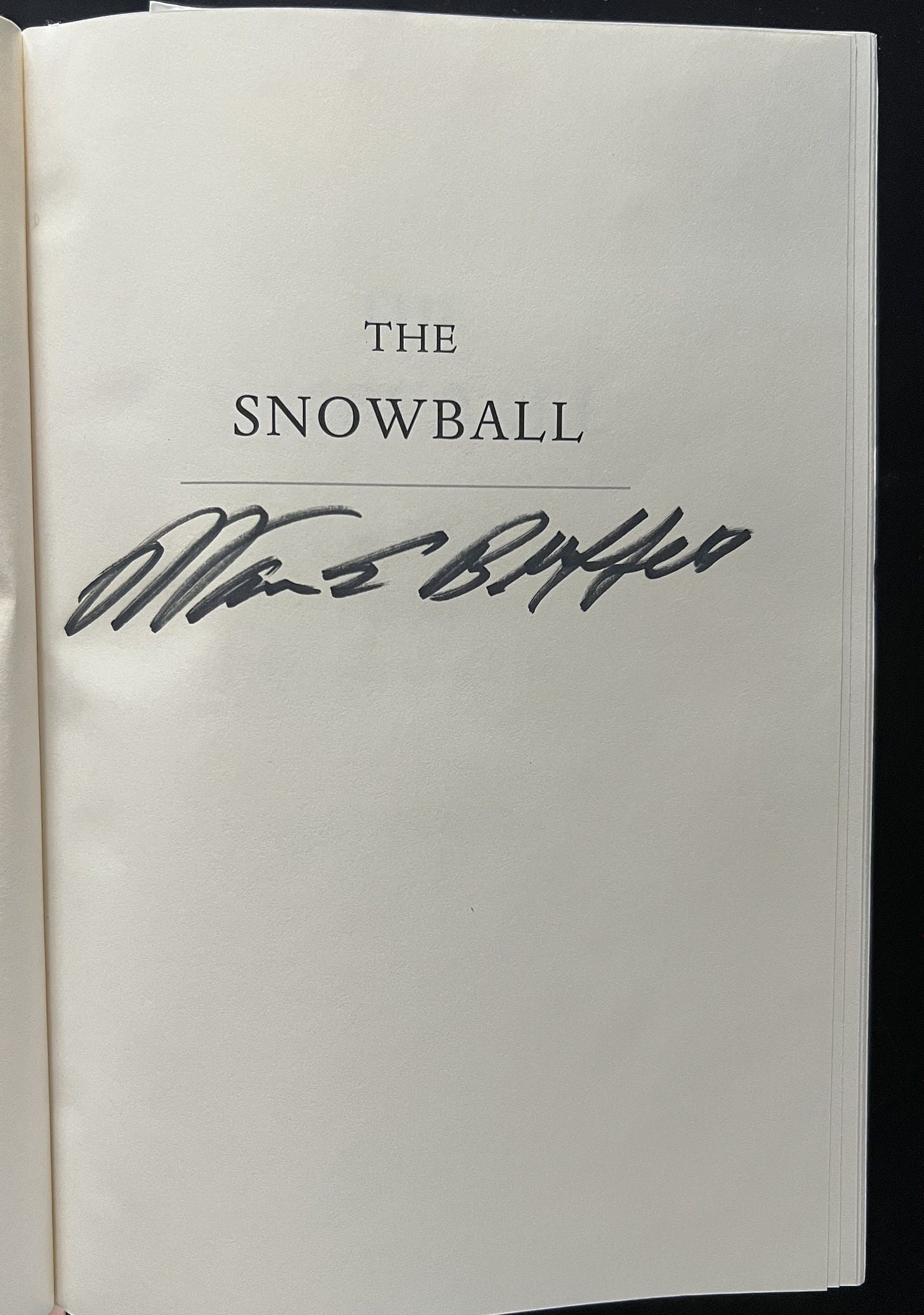Behind The Curtains of Buffett's Life with Alice Schroeder
"I will never forget a few people insisting to me that Warren is really not that interested in money."
I only went to Omaha once, in 2009. The economy was in shambles and I was about to graduate college. I was in love with a beautiful New Yorker, my future ex-wife, and equally seduced by the idea of becoming the next Warren Buffett. So I trekked to Nebraska carrying a copy of his brand new biography, Alice Schroeder’s The Snowball.
On the day of the annual meeting, Buffett spent hours signing copies, including mine.
Pretty remarkable given that his relationship with Schroeder didn’t survive the book’s publication.
Buffett unceremoniously canceled their annual dinner and stopped speaking to her. Schroeder later acknowledged that Buffett had “made himself extremely vulnerable” and her book “did not perfectly match the narrative of his own life.”
It was courageous of him. The end result is that the book makes him feel uncomfortable.
Schroeder estimated he’d spent “2,000 hours of concentrated time” with her. That was an unprecedented amount of access to his life, a look behind the curtains unlikely to be matched by any other outsider.
It was an exhausting time for her. Schroeder recounted feeling “unbelievably wrecked” after spending 4-5 days a week in Omaha due to the intensity of Buffett’s intellect. His friends and colleagues likewise told her they “needed time to recuperate after seeing him. Or that they could only take him in doses of two hours at a time.”
It’s so intense to have someone racing ahead of you mentally and you are trying to keep up. This is clearly one reason for his bond with Bill Gates. They don’t have to wait for each other to catch up.
For example, Schroeder noted that Buffett remembered conversations “better than you do” and subtly used this ability to test people:
I don’t know if you’ve ever been in that situation, where you realize the other person has asked you the same question some time ago. When Buffett does that, it’s often a test.
He will ask very probing and penetrating questions and then 2 months later he will ask again and you know he remembers the exact words you said. It can feel a little like getting deposed, and it’s a bit spooky to have a human tape recorder sitting in front of you. And of course, he’s reading you emotionally at the same time, and you know it.
Something to keep in mind the next time you hear Buffett downplay his intelligence.
Schroeder has kept a low profile since then. Some of her post-financial crisis comments on Buffett were rather pessimistic, like in 2012, when she focused on his lagging performance and struggles to steer the Berkshire behemoth through a ZIRP world.
To appreciate how well she understands Buffett, we have to revisit the interviews she gave at the time of publication. They are, unfortunately, evidence that not everything on the internet is forever. Many of these gems are accessible only in the web’s archives.
The Art of Alchemy is a reader-supported publication. Become a paid subscriber to go deeper and read full posts.
Keep reading with a 7-day free trial
Subscribe to Frederik's Age of Alchemy to keep reading this post and get 7 days of free access to the full post archives.




